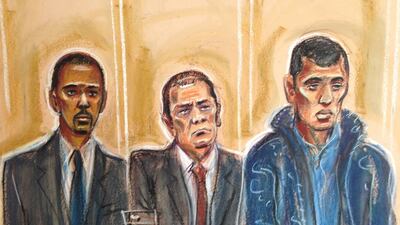The severity of sentencing in the case of the London hammer attacks against three Emirati sisters, Khuloud Al Najjar, 36, Ohoud Al Najjar, 34, and Fatima Al Najjar, 31, will hopefully bring a sense of closure – however slight – to the victims and their families.
As The National reported yesterday, Philip Spence, 33, was given a life sentence with a minimum term of 18 years after being convicted of three counts of attempted murder and one of aggravated burglary at Southwark Crown Court in October. Judge Anthony Leonard QC told him that "the ferocity of that attack was such that you left one of the women, Ohoud Al Najjar, so badly injured that she will never walk again unaided".
Spence’s partner in crime Neofitos “Thomas” Efremi, who conspired with Spence and supplied him with the hammer he used for the attack, was sentenced to 14 years in jail. But is this enough for the family to move on?
Although Philip Spence will “lose” the middle years of his life if he serves his full-term – an 18-year sentence means he will not return to society until he is in his 50s – the lives of the Al Najjar family will never be the same again.
Ohoud is now left with just five per cent brain function, has lost vision in one eye and can no longer speak: this is a true life sentence caused by Spence’s brutal crime. Her sisters are both left with life-threatening injuries and will require further medical treatment to recover.
The severe impact of the attack left on their physical and psychological well-being of the sisters – and on their children, who were in the room at the time – will almost certainly remain for the rest of their lives.
Khuloud’s nine-year-old son and two daughters, aged 11 and 7, will remember the day for as long as they live. As Judge Anthony Leonard QC also reminded the court, it was “impossible to say what long-term effects this incident may have on the children”. No child should witness such brutality and violence.
While Spence has at least the slim hope of being able to return to society, his victims will never stop being victims.

